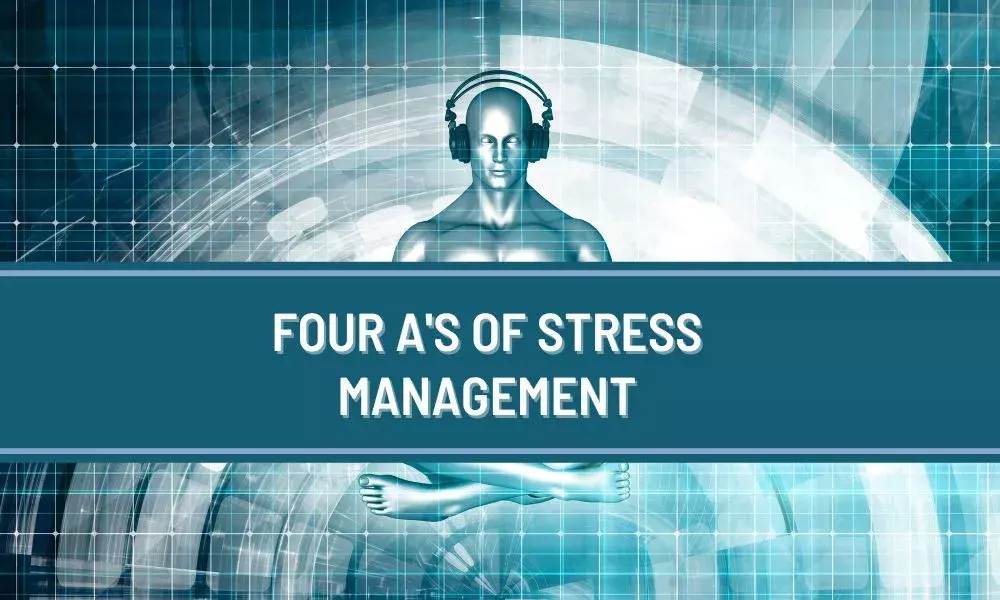Stress has become inevitable in our lives. It has gradually become an integral part of our lifestyle with the multiple responsibilities that we have and the constant competition that we face. We should control and manage stress as it can affect our health adversely.
Stress can increase our risk of several physical and mental health problems.
-
Anxiety and depression
-
Constant headaches
-
Muscle tension and pain
-
Digestive issues and weight gain
-
Increased risk of heart disease and hypertension
-
Sleep problems, memory, and concentration impairment.
Controlling the stress is therefore important for good health. Here are the four A’s of managing and reducing stress.
1. Avoid Unnecessary Stress:
It is vital to identify the factors that cause or increase stress. One should learn to identify these factors and avoid them. Not all the stress factors are within your control, but you can control some. Here are a few ways to avoid stress.
-
Be selective about what you agree to do and say “no” to things that may unnecessarily add to your load; this can reduce your stress levels.
-
Take control of your personal life. This may help reduce stress and protect your mental health.
-
Do not procrastinate. Procrastination may harm your productivity. This negatively affects your health and sleep quality.
-
Work on the things that need to be done today and give yourself small intervals of uninterrupted time.
2. Acceptance:
Acceptance is a useful tool to reduce and relieve stress because it helps minimize stress as it helps you manage your emotions. Acceptance provides you with full control of your reactions to stress factors.
Acceptance is an attitude, not an action. It is a state of mind that you build by identifying the situation and acknowledging the factors that are stressing you out. Tell yourself: “It is what it is, and I can’t change it right now.”
Acceptance does not mean you should accept all the wrong things and stop trying to change the incorrect. Acceptance is not passivity; it is perspective. It is a choice. When you practice acceptance, you are controlling unnecessary emotional reactions. The idea is to stay calm for a while and wait for the right time to change the incorrect.
3. Altering situations:
One of the most pivotal things to reduce stress is to gradually change the situation, causing tension or worry. Communicate clearly and let people around you know your expectations. It can help you change things around you and make a difference. Here is how you can try to alter situations:
-
You may respectfully ask someone to alter how they are treating you.
-
Be affirmative when you confront others to change the way they address you.
-
You must clarify your stand if someone is trying to manipulate your thoughts or resources. Be vocal!
-
State your limitations in advance.
4. Adapt to Changes:
The perception that you cannot cope is one of the major stress factors. Therefore, adapting and bringing changes in how you perceive things can help reduce stress in a great manner. Changing your mindset and expectations of stressful situations can help you cope with stress:
-
In case any activity causes stress, try to choose easier alternatives.
-
Do not strive for perfection. Imperfection can also make things work and bring happiness.
-
Do not think about stressful situations over and over in your head.
-
Focus on the positive aspects of life and ignore the toxic elements around you.
-
Try to change your perspective and do things that really matter in the long term.
Managing your stress is an important skill, as stress can negatively impact different areas in your life, including work, relationships, health, and body functioning. Stress is a part of everyday life. Implementing these four steps can help to provide balance for a healthier, happier lifestyle.





